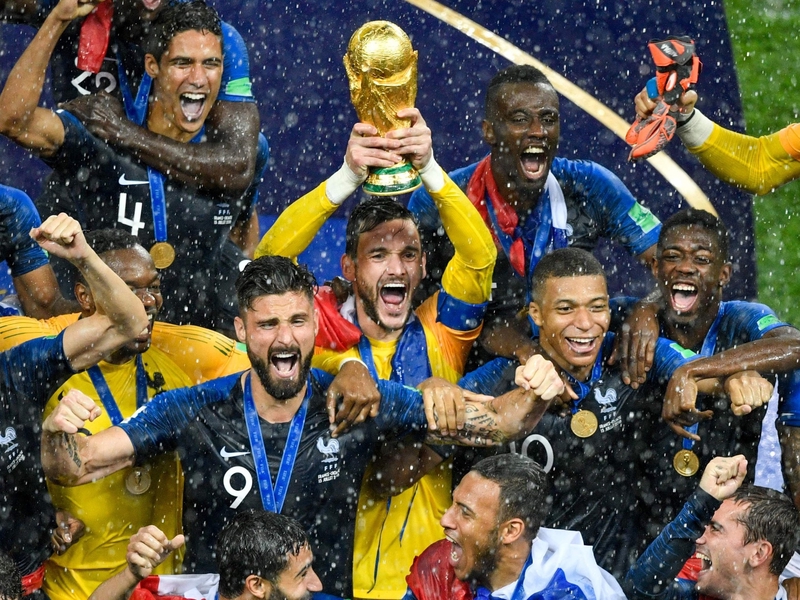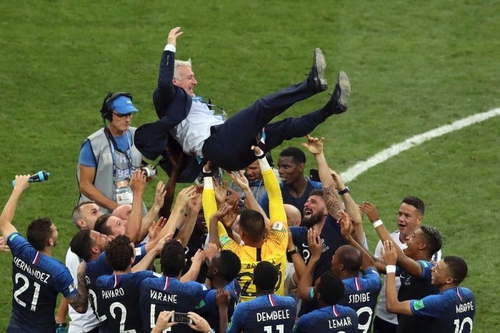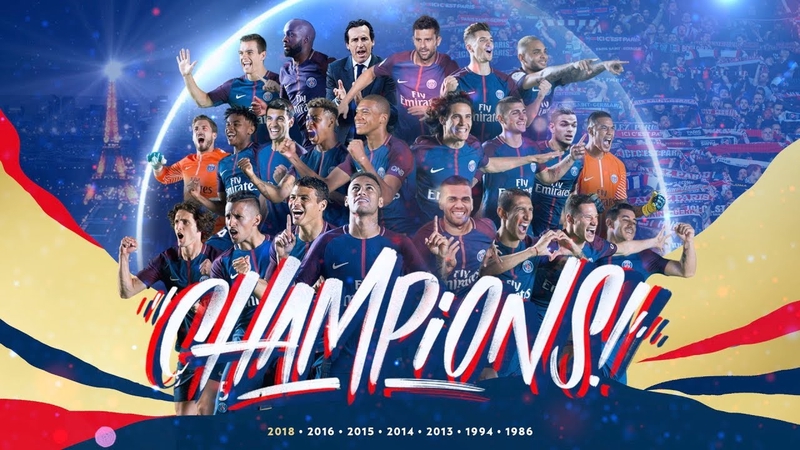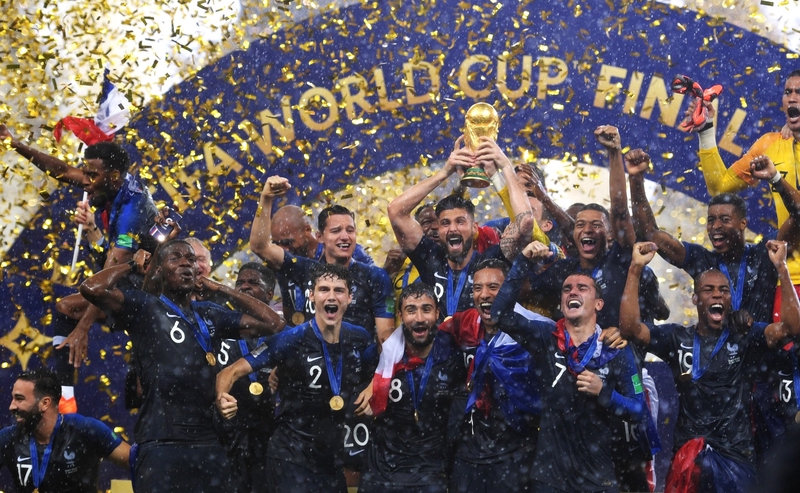
France is a side featuring a handful of the best players in the world, but it won the World Cup because it played the best team football.
And with its 4-2 victory over Croatia in the final, it became a fitting winner, as the most successful sides in Russia 2018 were all built around the collective, rather than star individuals.
The trend for modern football punditry and fandom is to speak about the game as though it revolves entirely around its biggest stars.
This World Cup was billed as Cristiano Ronaldo versus Lionel Messi when in reality it had virtually nothing to do with their faux personal battle.
Brazil was supposed to win because of Neymar's personal redemption narrative, but it didn't make it past the quarter-finals — and Neymar's reputation is probably worse off because of his constant play-acting.
Some have tried to paint France's win as a changing of the guard, with Kylian Mbappe the newly minted superstar surely the next guy to feature on the cover of video games as Ronaldo and Messi's careers fade.
But Mbappe was able to show off his breathtaking talent because his France side, coached by Didier Deschamps, was a much better collective unit than either Argentina or Portugal.
Les Bleus were not always dazzling — though the implication that they were dour and defensive throughout is a simplistic exaggeration — but they were a well-balanced unit with a clear plan.
They could win ugly, as they did against Australia and Peru in the group stage, they could play an almost risk-free style to beat high-quality attacking teams like Belgium and Uruguay, and they could go keep their heads and out-gun opponents in more chaotic, attacking contests, like their 4-3 win over Argentina or the final itself.
The most famous names in the France squad, Paul Pogba and Antoine Griezmann, both sacrificed personal glory for the good of the team, with Pogba foregoing much of his attacking instinct to anchor the midfield and Griezmann playing as a number 10 to link play rather than poaching goals up front.
France's defence was among the best in the competition, and its midfield flair players were backed up by fanatically hard workers like N'golo Kante and Blaise Matuidi.
A look across the other three semi-finalists reveals a similar story.
Belgium is another squad full of brilliant players, but it has taken them years of playing together to forge a real team ethos. Russia 2018 was where it all finally clicked, with selflessness resulting in some gorgeously fluid play.
England was not expected to go far in the knock-out stages but coach Gareth Southgate galvanised the side, with team spirit and training ground toil the keys to success.
Beaten finalist Croatia was built around its midfield duo of Luka Modric, the player of the tournament, and Ivan Rakitic, but from front to back everyone contributed to see the team through three 120-minute knockout games to the final.
Meanwhile, Ronaldo, Messi and Neymar, despite having moments of brilliance, simply couldn't drag their flawed teams through to the latter stages. That's because it simply doesn't happen in modern football the way it was once possible.
The hype around Mbappe and Pogba, and Griezmann and defender Raphael Varane, will soar into the stratosphere following their successful World Cup tilt, but in reality none of them would have lifted the trophy without Deschamps's careful planning and pragmatic approach.



Comments